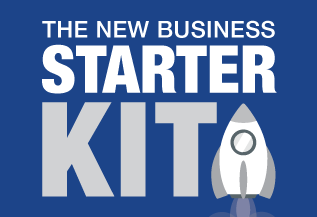Preparing to sell your business?
Where and when to start? Selling your business can be fraught with stress. Here’s how a business valuation accountant can set you up for a successful sale.
Preparing to sell
Post pandemic, you may be one of the business owners ready for change or retirement, and looking to hand on the keys for the right price. There’s over 19,000+ Australian businesses for sale on Commercial Real Estate.
The first step is to value your business for sale . Reaching a valuation through covid-affected financials might be challenging; data may not accurately indicate future performance. Forecasting models informed by external economic data, due diligence and an emphasis on current cashflow should enable you to arrive at a fair valuation.
Once you have a sales goal in mind, it’s time to get the ball rolling. Let’s take a look at:
- Where to sell your business and when
- How to sell as a joint owner
- The key steps in the business sale process
- How a business valuation accountant can support a better business sale.
Where to sell
Not sure where to sell your business? You have a couple of options:
- Engage a business broker to act on your behalf. Brokers aim to get you the best price, ensure the sale is legally compliant, and make the selling process as stress-free as possible. Most brokers charge an upfront fee and take a commission of around 10%. Make sure you do your research to understand their processes, fees and specific industry experience.
- Do it yourself leveraging the power of technology. But, be prepared – what you save in broker commissions you trade for your own time and energy. If you’re going it alone you’ll need to get your financials in order, advertise online, field enquiries and arrange a contract of sale with your lawyer and business valuation accountant.
Where to advertise depends on your business type, industry and contacts. Consider these channels:
- Online marketplaces like SEEK Business and Commercial Real Estate
- Social media – particularly if you have an engaged following
- Industry publications and platforms
- Existing networks e.g. family, friends, employees and customers
When to sell
Timing is everything to put your business on the market. Much like winter is the perfect time to sell coats, every industry has its peaks and troughs. Consider these variables:
- Seasonal trends
- Local economy (particularly cash rate status)
- Industry-specific events
- Competitor movement
- Your cashflow and financial history
Selling as a joint owner
Selling when you own the business with someone else adds another layer of complexity. Ideally, you’ll have a shareholder or partnership agreement in place which stipulates:
- What share of the business each person owns
- What happens if one of you decides to exit the business
- The process for mediation if there is a dispute
If not, what happens if you want to sell and your partner doesn’t? If you own 95% of the business and your partner only owns 5%, then the decision making will likely come down to you. If you own an equal or minority share, things can get more complex.
Start by working out what your portion of the business is worth. If there are assets involved, establish who owns what, and what needs to be included in the overall valuation.
To sell your share, you then have a couple of options:
- Your partner buys out your portion of the business and becomes the sole owner.
- You sell your portion of the business to another buyer.
It’s a good idea to work with a solicitor and a business valuation accountant when managing the sale of your business. Together they conduct due diligence and ensure you understand your obligations – such as non-compete clauses, transfer of skills, and handover expectations.
The business sale process – step by stepDefine your sales strategy including your goal price, how and when you will sell.Advertise your business through the best-fit channels. Get your paperwork sorted including financial, loan and tax statements. Negotiate the sale price, dates, non-compete clauses, staff arrangements. Get a contract of sale from a professional that includes managing issues. Communicate with your employees about impacts of the sale. Exchange funds on the settlement date per the agreed terms. Transfer lease agreements, permits, licences, registrations, assets etc. Sign over directorship of the company ensuring transfer of liability. Notify others of the sale including customers, government agencies etc. |
How a business valuation accountant supports a better business sale
Even if you decide to DIY, a good accountant plays a crucial role in ensuring a smooth business sale. How can they help?
- Get the best price on your terms – unsure how to value your business and therefore what price to shoot for? An accountant can calculate a thorough valuation that facilitates a sales price beyond what you might have thought possible.
- Keep the assets you want – want to sell your business but retain ownership of physical property, infrastructure or IP? An accountant can help you navigate through these complexities to support your desired outcome.
- Determine the most suitable sale structure – navigating a joint partner sale or want to implement a staggered takeover? An accountant can outline your options and ensure you’re across the regulations.
- Invest wisely post sale – once you’ve sold, what will you do with the proceeds? Perhaps you need to clear some debt or you might be ready for your next investment? An accountant can help you explore your financial options, ensuring you put your newly injected bank balance to best use.
Don’t go it alone
Even the smoothest business sale is stressful. Set yourself up for success by partnering with a trusted business valuation accountant who can devise a well-considered sales strategy. Expert advice will ensure you get the best price, stay on top of complexities and compliance, and use the proceeds wisely.
Successful business sales are delivered with expert accounting support.
Ask for a
callback from Sheridans.
Disclaimer:
The information is general in nature and is not personal advice. It does not take into account your needs, objectives or financial situation. You should seek independent advice suitable to your circumstances.














